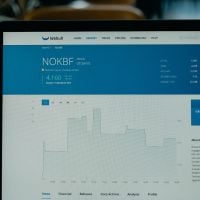Deadline: 7 February 2019
The European Union (EU) is currently accepting proposals for its grant program entitled “India – Civil Society Organisations: Enhancing CSOs’ Contribution to Governance and Development Processes” to strengthen the ability of Indian civil society and its organisations to perform their role as independent agents of change, implementing actions that bring transformative change into the lives of women and girls.
The specific objective(s) of this call will focus on impacting the lives of vulnerable women and girls by building capacities of CSOs in India to scale up their work, through partnership and engagement with social enterprises, private sector, cooperatives and social businesses.
Priorities Area
- Priority will be given to proposals building capacities with specific emphasis on:
- Promoting women’s economic and social rights and empowerment;
- Enhancing women’s voice and leadership, and participation in social and economic life;
- Promoting gender equality so as to improve access to resources and guarantee equal rights;
- Strengthening capacities for undertaking policy dialogue with decision makers to enhance women’s participation;
- Increasing Women’s participation in the climate change agenda;
- Promoting trilateral cooperation on the above issues through the engagement of Indian CSOs with CSOs in the region and/or in the African continent.
- For the purpose of promoting trilateral cooperation under this call, if/when a project proposal involves legal entity(ies) based in the African continent, the entity(ies) should be “Associates”
Size of Grants
Any grant requested under this call for proposals must fall between the following minimum and maximum amounts:
- Minimum amount: EUR 750.000
- Maximum amount: EUR 1.000.000
Eligibility Criteria
- Lead applicant
- In order to be eligible for a grant, the lead applicant must:
- be a legal person and
- be non-profit-making and
- be a specific type of organisation such as: non-governmental organisation/civil society organisations (registered as non-profit legal entities) and
- be established in a Member State of the European Union or a Member State of EEA or in India
- For British applicants: Please be aware that eligibility criteria must be complied with for the entire duration of the grant. Unless sector-specific eligibility rules provide otherwise, if the United Kingdom withdraws from the EU during the grant period without concluding an agreement with the EU ensuring in particular that British applicants continue to be eligible, applicants will cease to receive EU funding (while continuing, where possible to participate) or will be required to leave the project on the basis of Article 12.2 of the General Conditions to the grant agreement’ and
- be directly responsible for the preparation and management of the action with the co-applicant(s) and affiliated entity(ies), not acting as an intermediary and
- All civil society organisations, institutions and/or associations of local authorities – whether lead applicant or co-applicant(s) – must comply with respective national legislation/s applicable to non-profit organisations, including registration and reporting requirements. Indian entities must have a valid FCRA registration at the time of application as well as when contracting and
- When the project proposal includes one or multiple co-applicant(s) based inside and outside India, the Lead Applicant needs to ensure that, if the action requires, it can transfer funds to the co-applicants based in the country or abroad, as relevant for the action, and this as per the applicable national rules and legislation; i.e. Indian lead applicants and co-applicants need to comply with the Foreign Contribution (Regulation) Act 2010, Foreign Exchange and Management Act etc. The lead applicant should not be in any legal situation, where it cannot transfer funds to its project partners or would need prior approval to do so.
- In order to be eligible for a grant, the lead applicant must:
- Potential applicants may not participate in calls for proposals or be awarded grants if they are in any of the situations
- The lead applicant may act individually or with co-applicant(s) as specified hereafter.
- Lead applicant established in India may act individually or with co-applicant (s)
- Lead applicant that is not established in India must act together with at least one co-applicant established in India.
- Co-applicant(s)
- Co-applicants participate in designing and implementing the action, and the costs they incur are eligible in the same way as those incurred by the lead applicant.
- Co-applicants must satisfy the eligibility criteria as applicable to the lead applicant himself, including registration and reporting requirements under the Foreign Contribution (Regulation) Act 2010.
- Affiliated Entities
- The lead applicant and its co-applicant(s) may act with affiliated entity(ies).
- Only the following entities may be considered as affiliated entities to the lead applicant and/or to co-applicant(s):
- Only entities having a structural link with the applicants (i.e. the lead applicant or a co-applicant), in particular a legal or capital link.
- This structural link encompasses mainly two notions:
- Control, as defined in Directive 2013/34/EU on the annual financial statements, consolidated financial statements and related reports of certain types of undertakings:
- Entities affiliated to an applicant may hence be:
- Entities directly or indirectly controlled by the applicant (daughter companies or first-tier subsidiaries). They may also be entities controlled by an entity controlled by the applicant (granddaughter companies or second-tier subsidiaries) and the same applies to further tiers of control;
- Entities directly or indirectly controlling the applicant (parent companies). Likewise, they may be entities controlling an entity controlling the applicant;
- Entities under the same direct or indirect control as the applicant (sister companies).
- Entities affiliated to an applicant may hence be:
- Membership, i.e. the applicant is legally defined as a e.g. network, federation, association in which the proposed affiliated entities also participate or the applicant participates in the same entity (e.g. network, federation, association) as the proposed affiliated entities.
- Control, as defined in Directive 2013/34/EU on the annual financial statements, consolidated financial statements and related reports of certain types of undertakings:
How to Apply
In order to apply for the grants, applicants have to register themselves in PADOR, an on-line database via given website.
For more information, please visit https://bit.ly/2DE0ng1 and download the guidelines.









































